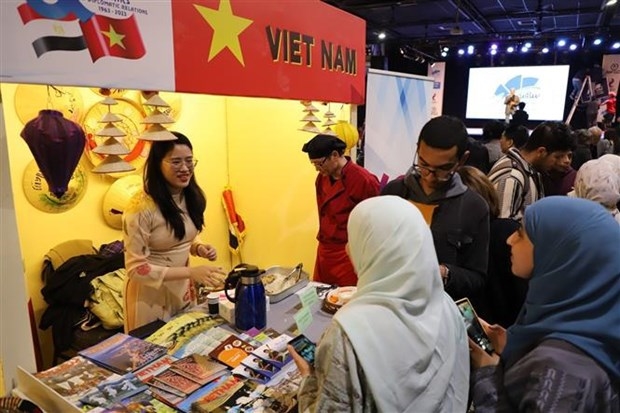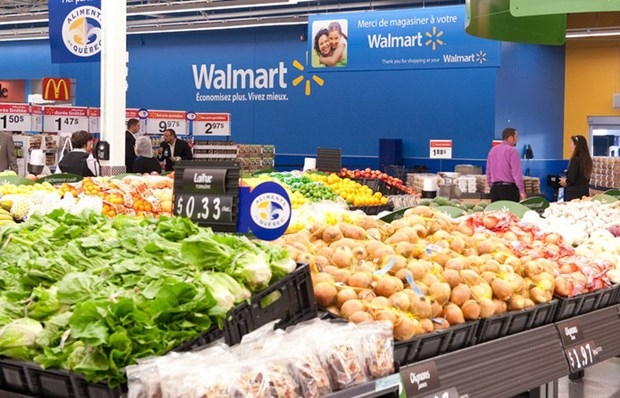 |
| Photo for illustration (Source: vov.vn) |
Addressing a working session held on February 23 with the Vinh Long provincial administration, Koji explained at present, Japanese firms are mainly focused on investing in Ho Chi Minh City and neighbouring localities, with labour and construction costs in these areas being high and the land fund in industrial parks now being limited.
As a result of these factors, Japanese firms are actively looking for investment opportunities elsewhere throughout the Mekong Delta region, including in Vinh Long, he said.
According to the executive, Japanese investors typically face difficulties, including excessive administrative procedures, which can be quite complicated and take a long time to handle, and they hope that local authorities will help foreign firms to tackle these obstacles in order to attract greater foreign investment.
Nguyen Van Liet, vice chairman of the provincial government, welcomed Japanese investors seeking to channel their capital into the local sectors of support industries, processing and manufacturing, smart technology, among others.
Vinh Long is committed to creating the best possible conditions for investors to undertake their projects in the locality, he assured.
Last year saw Vinh Long’s export turnover to the Japanese market reach US$60.2 million, making up 8% of the province’s total export turnover and increasing by 40% against the figure recorded in 2021.
The locality mainly exports leather shoes, textiles, auto parts, handicrafts, and processed agricultural products to the Far East nation.
Japan now has 11 valid investment projects valued at US$213.8 million, becoming the largest foreign investor in Vinh Long.
Typically, Japanese firms pour investment into fields such as food production and processing, farm produce processing, warehousing and storage services, and the manufacturing of machines, tools, and sewing machine parts.
Vietnamese agricultural products increasingly welcomed in Belgium
More and more people in Belgium know about Vietnamese agricultural products and welcomed them, reported VOV.
 |
| Vietnamese agricultural products increasingly welcomed in Belgium (Source: vov.vn) |
Cocoxim fresh coconut milk of Ben Tre Import-Export Joint Stock Company (Betrimex) is among Vietnamese products that are welcomed much in Belgium.
Pham Bich Thuy, the owner of “Le Panier Asiatique” - an Asian grocery in Brussels, said that besides Vietnamese customers, many foreigners visit her store.
She always tries to introduce Vietnamese products to the customers, offering them to take home to try first and pay later.
Many of the customers revisit her store and choose Vietnamese products because of their competitive prices and quality compared with those from other countries, Thuy said.
For the last few years, many agricultural and food products of Vietnam are favoured by customers in Belgium such as Duy Anh rice papers, Ba cay tre (Three Bamboo) fresh vermicelli, dried pho, Vifon instant noodle, Phu Quoc fish sauce, and Cocoxim fresh coconut milk of Ben Tre Import-Export Joint Stock Company (Betrimex).
Tran Ngoc Quan, Vietnam’s Trade Counselor in Belgium and the EU, said that the challenges for Vietnamese goods are not small. Firstly, Vietnamese goods access the Belgian market through many local importers, making Vietnamese businesses highly reliant on the importers and unable to build brands.
Secondly, in the past time, while some Vietnamese enterprises were very proactive and made changes in production to serve export, others still produced first and then looked for markets.
Quan said that in that way, it’s very difficult for them to access markets like the EU which has a lot of regulations for imports.
In addition, many spices such as basil, laksa leaves, perilla, and coriander are of the Vietnamese origin but purchased and exported to Europe by Thai enterprises.
Therefore, promoting the export of agricultural products, fruits, and vegetables to the Belgian market in particular and the European market in general requires efforts from Vietnamese enterprises to improve production capacity, ensure product quality, and look for business partners.
Vietnam impresses visitors at cultural festival in Egypt
According to VNA, Vietnam is leaving strong impression on visitors at the Sakia Exhibition for Cultural Services, which opened in the Egyptian capital city of Cairo on February 22.
 |
| Vietnam impresses visitors at the Sakia Exhibition for Cultural Services in Egypt. (Photo: VNA) |
The Vietnamese Embassy in Egypt shows many documents, books and photos on culture, history, land and people of Vietnam, especially its outstanding achievements after nearly 40 years of Doi Moi (renewal).
Besides books on tourism introducing attractive destinations and unique features of regions, there also are magazines, photos, maps and documents and documentary screenings on Vietnam and the country’s specialities of fried spring rolls and coffee.
The event is party of a series of activities to mark the 60th anniversary of the establishment of diplomatic relations between Vietnam and Egypt (1963-2023).
The Sakia Exhibition for Cultural Services is held annually and allows countries to exchange cultural activities and boost solidarity and mutual understanding. This year's event attracts the participation of nearly 30 countries worldwide.
Project helps expand sales on transnational e-commerce channels
There is ample room for Vietnam to boost export and direct distribution of goods in foreign retail systems, heard a conference recently held by the Vietnamese Ministry of Industry and Trade (MoIT), reported VNA.
 |
| Illustrative image (Photo: baodautu.vn) |
At the event, which discussed the implementation of the Government’s project on promoting Vietnamese enterprises' direct participation in foreign distribution networks by 2030, representatives of foreign distribution giants said Vietnamese exporters need to ensure stability in output, quality, and price of goods; and meet requirements of environmental protection for their products.
Shiotani, General Director of Japan’s Aeon Topvalu Vietnam said his firm annually imports tens of thousands of tonnes of bananas with a total value of 100 million USD, with up to 70% of the volume used to be from the Philippines because banana supplies there are stable in terms of price and quality.
However, in 2018, Aeon signed a memorandum of understanding with the Vietnamese Ministry of Industry and Trade (MoIT) and began to import fresh bananas from Vietnam.
With positive feedback from customers, the volume of Vietnamese products exported to Japan increased significantly last year, accounting for more than 50% of the company’s total banana imports.
Shiotani said his company chooses banana suppliers based on their circular production model, adding that the model of this kind should be expanded.
To be accepted at foreign distribution systems, suppliers must meet the requirements of sustainable development and environmental protection besides product quality and price factors, he noted.
 |
| Photo for illustration (Source: moit.gov.vn) |
Aly Ansari, senior director in charge of supply at Walmart Group of the US, also said the firm is interested in suppliers who focus on sustainability factors.
He said Walmart places great emphasis on products made by ethical suppliers, who pay their workers fairly and attach special importance to ensuring food safety.
Vietnam’s agro-aquaculture products will be prioritised if Vietnamese producers apply climate change adaptation solutions to farming, he said.
According to Do Hong Hanh, strategic partner director of Amazon Global Selling Vietnam, in 2022, Vietnam’s exports through Amazon sharply soared by 80%. Nearly 10 million Vietnamese goods items, mainly kitchen products, textiles, health care products, and consumer goods, were exported through e-commerce platforms, with export value rising by 45% from the previous year.
Do Thang Hai, Deputy Minister of Industry and Trade said by implementing the project, Vietnam's high-quality products have reached millions of consumers through distribution channels worldwide.
Exporting to distribution systems of foreign retail groups has become an effective and sustainable solution to further expand the country’s export, Hai noted.
In the coming time, the MoIT will focus on developing a network of strategic partners for the project, especially retail distribution companies that have a presence in Vietnam or those that are interested in shifting their supply chain to the Vietnamese market, Hai said.
The ministry will also pay heed to studying and proposing suitable policies to encourage Vietnamese enterprises to engage in direct export, he said./.